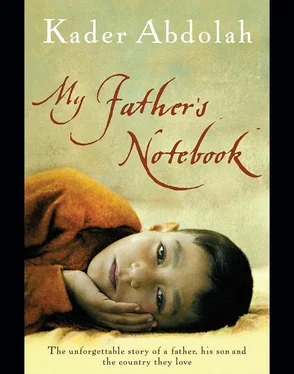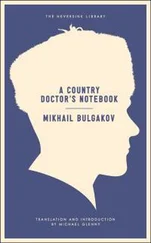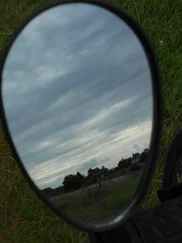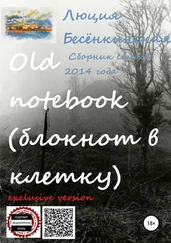“What’s wrong? Why did you knock so hard?”
“Good morning. I’d like to talk to Dr Pur Bahlul.”
“Talk to him? What for? The office opens at three.”
“I know, but I’d like to talk to him now.”
“What about?”
“I’d prefer to discuss that with him.”
He looked at me, thought it over, then said, “Stay here. I’ll go and ask.”
I stood at the gate for a long time, until the door was finally opened by a grey-haired man with a pipe clenched between his teeth.
“Good morning, young man. I assume you’re looking for me.”
“Good morning, doctor. I’d like to talk to you about my father.”
“Your father. What’s wrong with your father?”
“His teeth.”
“If this is about teeth, you’ll have to wait until three o’clock,” he said and sucked on his pipe.
“No, it’s not about teeth. It’s about me.”
“But also about your father’s teeth.”
“No, not just that, it’s about his pain and … well, you see, I promised to make the pain go away.”
“What else? Go on, tell me the rest.”
“Well, I have to relieve the pain somehow and, uh … that’s it, doctor.”
He looked at me as he puffed on his pipe.
“Your name?”
“Ishmael.”
“Last name?”
“Mahmud Ghaznavi Khorasani.”
“Come on in. Follow me,” he said.
I followed him past a rose garden, a bed of petunias and a row of apple trees filled with red apples. We went into a room with tall windows.
“Two cups of tea,” he called.
His library was lined with shelves full of books. He pointed to a chair. “Have a seat.”
A servant brought us tea.
“Tell me your story. You mentioned your father. What does he do for a living?”
“He’s a carpet-mender.”
“Where?”
“Everywhere. He doesn’t have a shop, he just walks down the street calling, ‘ Farshi, farshi ’, so everyone knows he’s a carpet-mender.”
“Why ‘ farshi, farshi ’?”
“Well, he’s a deaf-mute. He just calls out a word that sounds like farsh (carpet).”
“Ah, I see. And I gather he’s having trouble with his teeth.”
“Every tooth in his mouth is rotten. The pain has aged him terribly.”
He struck a match, held it up to his pipe, inhaled deeply and sent the smoke spiralling into the air. Then he rummaged around in his drawer.
“I know you have to go to school. Here are some painkillers. Bring your father to my office tomorrow evening. We’ll talk some more then.”
“Thank you, doctor.”
“There’s no need to thank me.”
I stood up.
“Do you read books?”
“Yes, doctor.”
“OK, I’ll see you tomorrow evening.”
The gardener let me out. “Oops,” I said, “I forgot to tell the doctor something.” I retraced my steps.
“Doctor! May I come in?”
“Yes.”
“I think you should know that I can’t pay you. I mean, I’ll pay you back some day, but not now. I should have told you that straight away. But I took one look at your library and forgot all about it.”
“It’s late. Go to school. We’ll talk about it tomorrow.”
Dr Pur Bahlul was arrested a year later. He was released from prison only after the revolution began. As it turns out, he was one of the most important theoreticians of the underground leftist guerrilla movement, but until his arrest, his role had been kept secret even from his own party members.
When nearly all the leaders of the underground movement had been arrested by the shah’s secret police, Pur Bahlul, using his profession as a cover, was able to keep the party going for a couple more years. I was totally unaware of it at the time and only found out several years later when I myself became an active member of the party.
Over the next three months, Dr Pur Bahlul pulled out all of my father’s teeth, one by one. My father, with his toothless gums and grey hair, was now truly an old man. We made an appointment to come back in two months. Dr Pur Bahlul checked to see if my father’s gums had hardened, then measured his jaw and jotted down a few notes.
I’d seen dentures before, but it never occurred to me that my father would be fitted with a pair. I thought he’d have to drink soup for the rest of his life.
A few weeks later we came back for yet another appointment. My father sat down in the examining chair.
“Open your mouth,” Dr Pur Bahlul gestured.
He did.
“Now close your eyes.”
He did that, too.
The dentist took a set of dentures out of a plastic bag and, without looking at me or saying anything, inserted them in my father’s mouth. Then he tapped him on the shoulder. “Look in the mirror!”
Oddly enough, I felt as though the person staring back from the mirror was not my father but me. It seemed to be my mouth reflecting that shiny row of teeth and me staring in astonishment at my mouth, which held something new and modern, something young that didn’t fit with my old, worn face.
Now that my father was able to eat, he gradually put on weight. You could see that he felt like living again.
He was the first man in the mountains to have false teeth. In the summer, when we went to Saffron Mountain on our holidays, I kept having to tug at his sleeve to hurry him along, because every time he ran into an elderly villager, he’d take out his dentures and demonstrate how good and strong they were. He advised everybody to get a pair.
Sometimes I had to admonish him, “That’s enough. Behave yourself. You’re the father of three daughters. Put those teeth back in your mouth before everybody thinks you’ve gone crazy.”
It didn’t help. After that, he simply did it when I wasn’t looking.
• • •
Dr Pur Bahlul sent me a bill for 3,000 toman. It was an enormous amount of money, which I’d never be able to pay. After all, my father earned only three toman a day.
“You have an obligation to pay the bill,” the dentist said. “And you’ll pay it down to the last penny.”
“I know, doctor, but …”
Everything had already been arranged. He’d made an appointment for me with one of the editors at the city newspaper. If I agreed, I could work twice a week, for three hours a night, sorting letters from readers, editing them and getting them ready for print. I would be allowed to keep half of what I earned; the other half would go towards the dental bill.
It would have taken me years to pay off my debt, but fate intervened. A year later, I was heading towards his house with another book under my coat when I saw that his street was swarming with policemen. There were even three armed officers standing guard on his roof. The police held back the crowd and wouldn’t let anyone into the street. I hung around to watch.
Half an hour later, Dr Pur Bahlul was escorted out of his house by three policemen. He was smoking his pipe. The policemen started to shove him into the waiting car, but he wasn’t about to be shoved. He squared his shoulders, took a deep breath, stared into the crowd, then seated himself in the back.
The doors closed and he disappeared.
we skip a few years,
years in which Tina worked *
and Akbar was often gone.
But first Hannah’s good name has to be restored.

I wondered where my father slept when he was in the mountains. I knew there was another woman in his life, and he knew that I knew, but it remained a secret between us. Now that I’m so wrapped up in his notebook, I’m reminded of her for the first time in years. I can’t get her out of my mind. It’s a pity I don’t have a picture of her, that I have no idea what she looked like. I don’t even know if she’s still alive, though I suspect she is. You’re less likely to die, in my opinion, if you have a secret to pass on. I think s he’ll go on living until she and I somehow manage to meet.
Читать дальше













